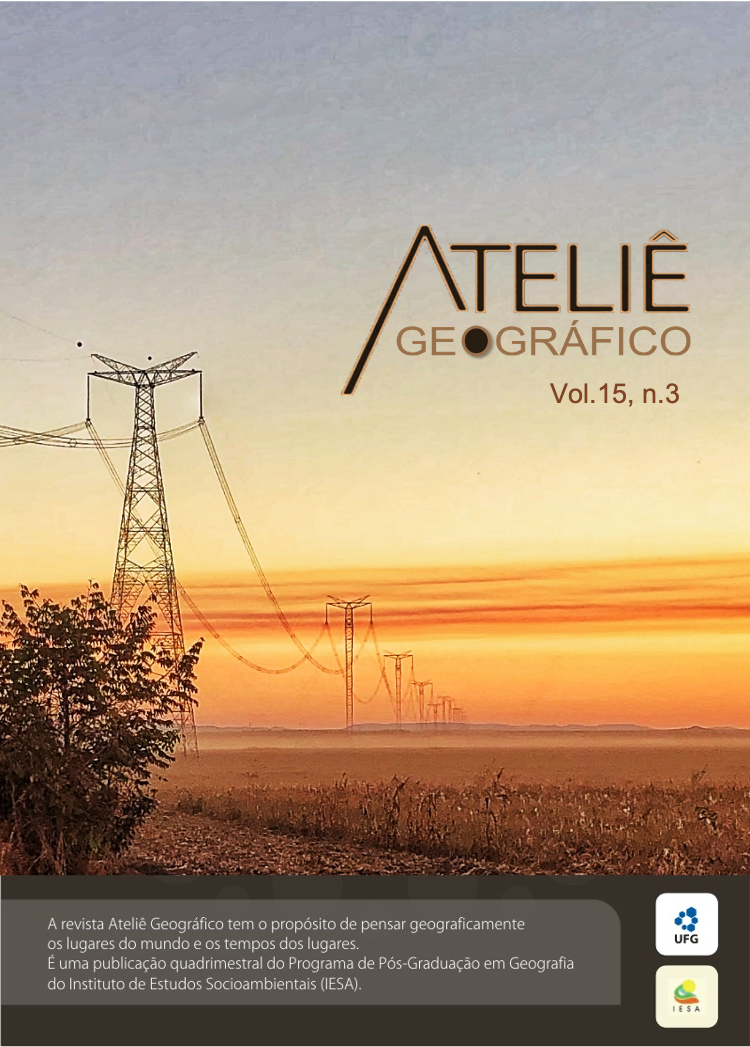Arrangements of worlds, ontological struggles, and geographical imaginings: proposing a literary geography based on the work of Mia Couto
DOI:
https://doi.org/10.5216/ag.v15i3.68617Abstract
This article takes an approach that overcomes the episodic and marginal nature of the Geography - Literature relationship by discussing how the intertwining of these two fields of knowledge is fruitful when the intention is to investigate the geographical imaginings present in the work itself, as opposed to conceptions that search for the aspects of reality in artistic-literary manifestations. Based on these assumptions, Mozambican author Mia Couto's work was selected to understand geographical imaginings about the unique world and the coexistence of geographies in and through his writings. Thus, in addition to the debate about the interweaving of geographic science and literary art, we discuss the reflection and proposition of the worlds present in Mia Couto's magical realism. We conclude that the intertwining between Geography and Couto's oeuvre is disclosed as part of Escobar's ontological struggles (2014), fighting against a single world's ideas and promoting geographical imaginings of coexistences; furthermore, is it a fruitful script for literary geography.
Keywords: Geography. Literature. Mia Couto. Imagination.
Downloads
Downloads
Published
How to Cite
Issue
Section
License
Autores que publicam nesta revista concordam com os seguintes termos:- Autores mantém os direitos autorais e concedem à revista o direito de primeira publicação, com o trabalho simultaneamente licenciado sob a Licença Creative Commons Attribution que permite o compartilhamento do trabalho com reconhecimento da autoria e publicação inicial nesta revista.
- Os autores não serão remunerados pela publicação de trabalhos na Revista Ateliê Geográfico. Além disso, os conteúdos publicados são de inteira e exclusiva responsabilidade de seus autores, ainda que reservado aos editores o direito de proceder a ajustes textuais e de adequação às normas da publicação.
- Autores têm permissão e são estimulados a divulgar seu trabalho online (ex.: em repositórios institucionais ou na sua página pessoal), já que isso pode gerar alterações produtivas, bem como aumentar o impacto e a citação do trabalho publicado (Veja O Efeito do Acesso Livre).


